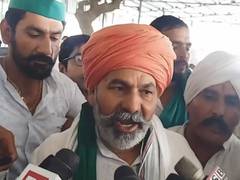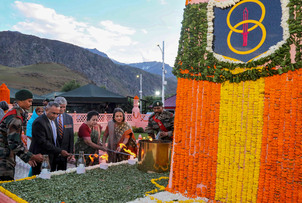Journalists selectively quoting judgments, speeches of judges distorts public understanding of legal issues: CJI DY Chandrachud

Chief Justice of India (CJI) DY Chandrachud on Wednesday expressed concern on the selective quoting of judgments as well as speeches of judges by journalists.
According to the CJI, there has been a rising interest in legal journalism and legal journalists are the story-tellers of the justice system, shedding light on the complexities of the law. However, he flagged selective quoting of judges' remarks inside and outside courtrooms.
He explained that this can potentially mislead the public's understanding of legal matters, as judges' decisions often involve subtleties and complexities. Selective quoting can create the impression that the verdict is entirely different from what the judge had intended, he added.
"In recent years, we are also witnessing rising interest in legal journalism. They are the story-tellers of the justice system, shedding light on the complexities of the law. However, selective quoting of judgments and speeches of judges by journalists in India has become a matter of concern. This practice has the tendency to distort public understanding of legal issues. Judges' decisions are often complex and nuanced, and selective quoting can give the impression that a verdict is entirely different than what the judge intended. It is thus essential for journalists to give a complete picture of the event, rather than presenting a one-sided view and reporting impartially and accurately," he stated.
The CJI was speaking at the 2023 Ramnath Goenka Excellence in Journalism Awards, where he touched upon the connections between law and journalism, highlighting the role of the latter in today's world.
He emphasized that while journalists may attempt to simplify complex facts, they must not sacrifice accuracy in the process.
"Persons of both the professions believe that the pen is mightier than the sword, and also bear the professional hazard of not being liked by people. Journalists are constantly endeavoring to simplify the complex facts and break them down. This simplification of info should not be at the cost of accuracy, which complicates the job of the transformation. The task of the journalist is to only cut the clutter," he said.
The CJI even flagged the menace of fake news in the country, stating that it can create rifts between communities, and has the potential to destroy democracy.
He also highlighted the media's critical role in shaping current issues, citing the #MeToo movement. He noted that when the press is prevented from asking tough questions and holding the establishment accountable, the vibrancy of democracy would be compromised.
"The media plays a critical role in shaping current issues, such as the #MeToo movement, which focused on sexual harassment by prominent individuals, and had a global impact. As the fourth pillar of the State, the media has the potential to hold the establishment accountable and ask the tough questions."

















